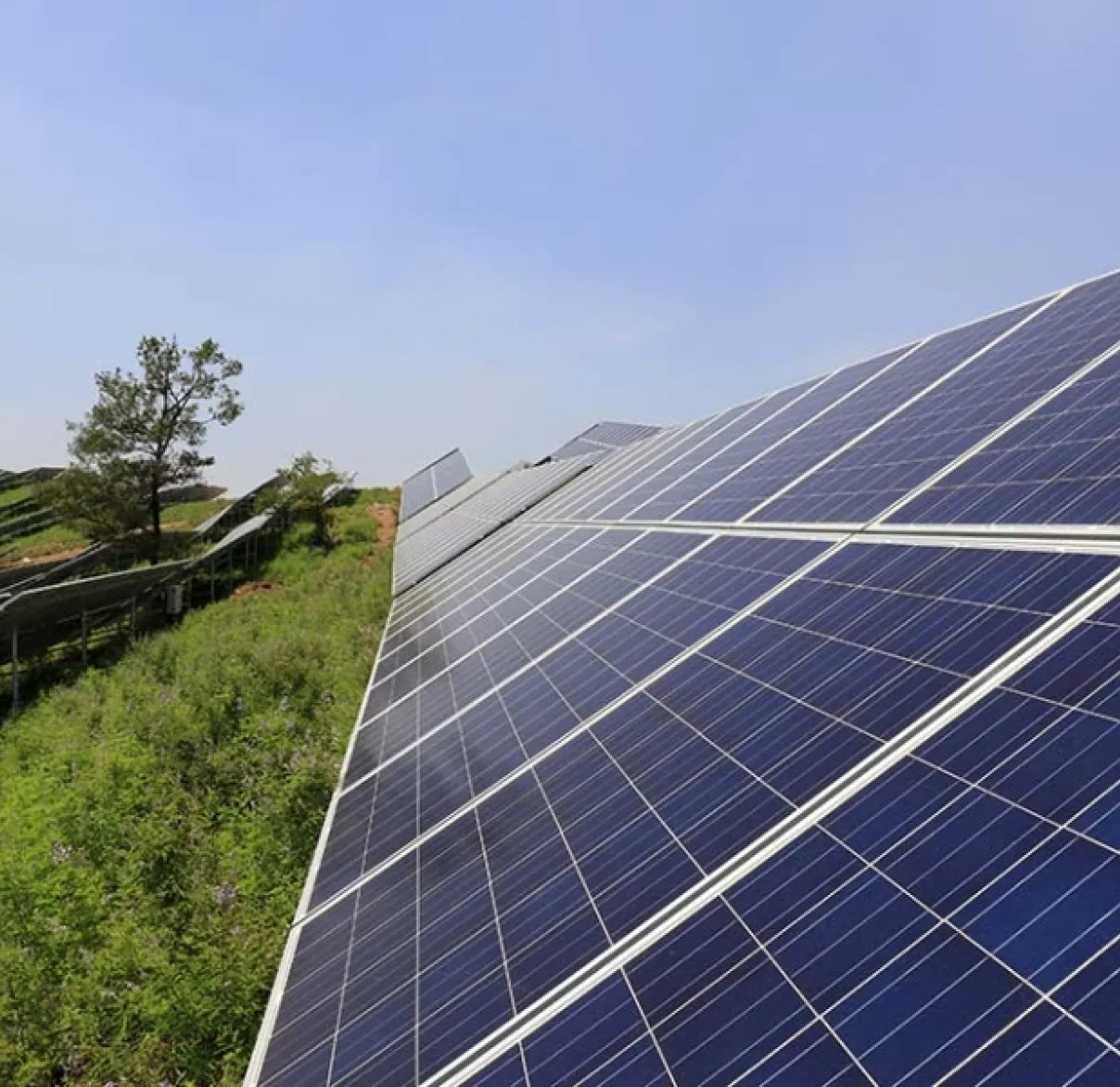Will the green transition help or hinder economic expansion?
The fortunes of all investors – charities included – are bound up to some extent with global economic growth. We look at how the transition to net zero could play out on the global economic stage over the longer term – and, by implication, how that could impact on investors’ portfolios.

Article last updated 22 July 2025.
Leaving aside political instability and the current shock to the world economic system caused by the conflict in Ukraine, a key question for investors over the long term is whether the move toward ‘net zero’ carbon emissions will help or hurt economic growth. This is a question over which there is a lot of diverging opinion.
Although last year’s COP26 global climate summit in Glasgow had its disappointments, we remain hopeful that governments and businesses will avoid a negative impact from this transition by taking sufficient action sooner rather than later.
Whether we will see significant further progress towards securing a net zero world at COP27, scheduled to take place in the Egyptian resort of Sharm El-Sheikh in November this year, of course remains to be seem, particularly given the increasing geo-political tensions Europe and the world is facing.
However, the fact remains that the transition to net zero will require unprecedented levels of investment globally. In fact, the International Energy Agency (IEA) estimates that annual investment in the energy industry will need to rise from $2 trillion today to $5 trillion by 2030 if we are to transition to a net zero world.
So, what is this likely to mean for the trajectory of the global economy?
"However, the fact remains that the transition to net zero will require unprecedented levels of investment globally."
We can’t just assume that simply adding that extra $3 trillion per year to annual GDP means more growth and happy days for investors. That would be to ignore the question of where that $5 trillion is actually coming from.
To put it bluntly, capital doesn’t grow on trees. In reality, it’s most likely to be capital that would otherwise have been invested elsewhere. In which case, will this net-zero transition lead to less innovation and less productivity growth than if that capital wasn’t diverted from elsewhere? That’s a really crucial question.
An optimistic outlook
We are optimistic for a couple of reasons. First, some of this investment is likely to be in public infrastructure, which encourages lots of job creation and investment and raises productivity. The second reason is that the fall in the cost of clean energy technology has exceeded even the most optimistic expectations from 10 to 20 years ago.
There is some interesting evidence that the change in the cost of climate-change fighting technology assumed by many of the models used to determine the economic impact is too slow.
If we assume the cost of these technologies falls at a pace similar to what we have seen in many other technologies in the last 50 years, we might find that the transition actually boosts growth.
Including the first industrial revolution, the world has seen five great waves of productivity growth – and energy revolutions have been involved in four of them.
So why can’t we have another industrial revolution powered by cheaper green energy?
That’s the optimistic view. Economists at the Bank of England (BoE) and the Network for Greening the Financial System (NGFS) suggest the transition to net zero is likely to reduce GDP by 2050, but only by 1 percentage point. So, that’s only a little less growth than if we do nothing.
A recent review of the academic literature around the net zero transition showed an inconclusive split between studies that suggest it will help, hinder or make no difference to economic growth.
Worth the cost
Our base case is for a small negative impact on growth by 2050, but we are optimists. Eliminating the huge negatives from not combating climate change, which don’t show up in GDP figures but do actually impact our wellbeing, is probably worth that cost.
Policymakers need to take action now, however. That’s the best way to prevent the economic costs outweighing the benefits over time.
Economies and businesses can evolve and adapt to well signalled and spread-out changes, but a more sudden imposition of policy — for example in 2028 or 2029 — could entail huge transition risks.
"Policymakers need to take action now, however. That’s the best way to prevent the economic costs outweighing the benefits over time."
And it isn’t just about policymakers. We urge higher carbon businesses we engage with to adopt robust decarbonisation policies today, to decrease that risk of a more sudden, financially disruptive policy being imposed by governments further down the line.
Those same economists at the BoE/NGFS expect GDP in 2050 to be 5 percentage points lower if we delay the transition by 10 years.
So, it seems it’s all a question of timing, and, unsurprisingly, the sooner the world takes action, the better the outlook for growth.



